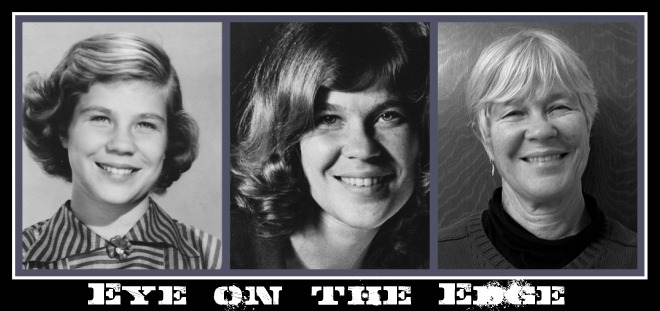 |
| Smiling rainbow |
It turns out that Conroy was a military brat, just like me, and he went to 11 different schools by the time he was 15, as the child of a career Marine Corps fighter pilot. He never had a home town until he moved to Beaufort, South Carolina and then attended The Citadel, the military school of South Carolina. He writes very lyrically about Charleston in this novel, and I as a writer was really struck by the way he describes places, bring them right out of the page and into vivid clarity. I found this in a book review by Chris Bohjalian in the Washington Post:
I should note that even though I felt stage-managed by Conroy's heavy hand, I still turned the pages with relish. Conroy is an immensely gifted stylist, and there are passages in the novel that are lush and beautiful and precise. No one can describe a tide or a sunset with his lyricism and exactitude. My sense is that the millions of readers who cherish Conroy's work won't be at all disappointed -- and nor will anyone who owns stock in Kleenex.Pretty much sums up the book for me. But what has caused me to ponder the nature of goodness that was triggered by that book, is the whole juxtaposition of events in a life that cause us to be empathetic to the plights of others, or completely unmoved by them. Conroy was fired from his first job as a teacher because he refused to use corporal punishment on his students. I was surprised to find that 19 states still use this method, because I thought it was illegal everywhere. I myself have been on the receiving end of spankings, as most of us of a certain age grew up when it was thought to be the only way to discipline children. As a military brat, I somehow escaped being whacked in school, but I could have been. I spanked my own children because it was what you did in the sixties.
What makes anybody a good person? It's hard for me to conceive that physical punishment makes anybody a better person, but this is not a universal belief. It's hard for me to understand how might makes right, how a beating of any kind can actually cause anything more than shame and resentment. But then again, we all react differently to our life situations, so perhaps I'm wrong about that. I wonder what would modify bad behavior in someone who doesn't feel empathy for others. Perhaps some of my fellow bloggers who are teachers have a better idea and might share their thoughts with me. I hope so.
One thing that stands out for me in the novel is the protagonist, Leo, standing in front of a beautiful old home that he has just inherited from one of his long-time patrons on his paper route. The old man who died had become somewhat of a friend, and when he got sick Leo took care of him. He never told Leo anything about his plan, and he discovered the inheritance after the old man died. Leo ponders the circuitous path that got him to this place, one he could never have predicted.
It also made me wonder about the way the world works. Things that appear to be terrible and unjust can lead to avenues that could never have been predicted, ones that open to pathways that are beautiful and life-affirming. I am thinking right now about the recent presidential election in our country, with an outcome that seems scary and alarming to me, and realizing that I have no way of knowing the trajectory or outcome of this event. Although it looks bad to me as a liberal Democrat, the women's march in my home town a week ago was one of the most beautiful and wonderful experiences of my life. There was only joy and happiness all around me, with only the occasional negative protest sign. Most of them were lighthearted and uplifting, such as "Fight Truth Decay", "There Is No Planet B", "This Is a Sign," "We Shall Overcomb" and such. No angry riots and lots of smiles. I felt so much better just being there.
And who knows what is ahead for us? I realize that thinking the worst about the world and where we are going is counterproductive, hurting nobody but me. And if I will just lift up my eyes and take a look at the longer view, there are possibilities I cannot even imagine that might come out of our current political situation. Optimism is itself a tool that can make me feel better, and pessimism does the exact opposite. I find that eating right, exercising, and hanging out with friends over coffee helps, too. Charlie Chaplin once said, "You'll never find a rainbow by looking down."
"What day is it?"
"It's today," squeaked Piglet.
"My favorite day," said Pooh.
(thank you, A.A. Milne)
And mine, too. I am feeling the end of this post coming up, and I'm feeling all rainbow-y and optimistic. My partner still sleeps next to me, my tea is gone, and the coffee shop opens in a short while, and I know my pals will be gathering there soon. I am hoping that you will also ponder for a minute the nature of goodness, and how much of it comes naturally to you. Be well until next week, and don't forget to give your friends a smile or two.





